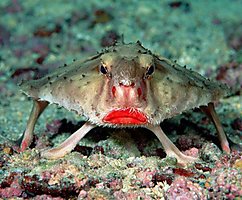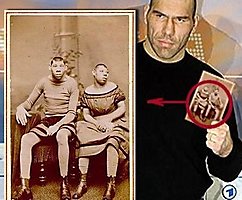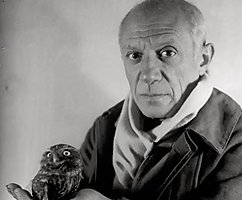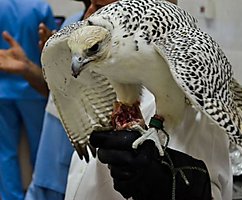Illusion of asymmetric insight why we consider ourselves better than others
 Bashny.Net
Bashny.Net
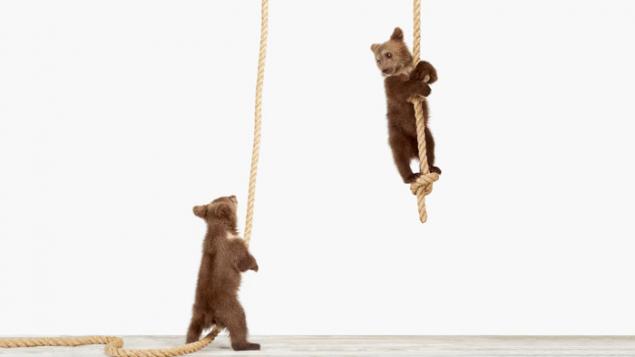
In 1954, in the eastern Oklahoma, two groups of children nearly killed each other. They lived in nature, play games, build homes, preparing food, were on the same territory, but were unaware of the existence of neighbors. Each group had lived in accordance with their rules of behavior and solved the problem of survival in their own way. Each tribe consisted of 22 boys aged 11-12 years, selected Muzaffer Sheriff psychologist for psychological and anthropological experiment. He placed the children in the Robbers Cave National Park in the middle of the camp scouts caves and thick forest, divided into two parts. Boys within the groups were not familiar with before coming to the camp, and the sheriff thought that, being in new surroundings and away from a familiar culture to them, they will create a new.
"Before we go to work, we put on a mask and uniform. We have a suit to chat with friends who do not share our beliefs, as well as for a family suit. We alone do not look at ourselves in the presence of a lover or a friend. Like Superman, we change clothes in a phone booth, when faced with old school friends in a store »
The scientist and his colleagues dressed employees of the camp and spent observation, without interfering with the natural process of the formation of groups. Very quickly manifested social hierarchy - the boys stood out among leaders and followers. The rules were formed spontaneously: for example, when a boy from the tribe "Rattlesnakes" injured his leg, but did not tell anyone about this until the evening, this behavior has become the norm in the group. Also, new rituals quickly: in both groups, the leaders have established the practice of pronouncing the prayers before meals. A few days later they initially arbitrary proposals become a common order of things. They invented their own games and have agreed on the rules. They started a project on clearing the territory and established a system of subordination. They have set up their flags and developed the tribal symbolism.
Soon, the two groups began to suspect that they are not alone. They found cups and other signs of civilization there, which had not previously visited. This made them even more strictly adhere to the new norms, values, rituals and other elements of a common culture. At the end of the first week of 'Rattlesnakes' representatives found another tribe on the baseball field camp. From this point on, both groups were predominantly employed in that thought about how they deal with opponents. Nameless Party asked the staff questions about strangers. When they were told that they call themselves "rattlesnakes", the group chose a name "Eagles" - the name for the bird-eating reptiles
. Sheriff and his colleagues plan to push the group in competitive sports. They are interested in how subjects behave in resource-limited settings. The fact that the boys began to compete for baseball field, it corresponds to the nature of the study. Scientists have moved to the second stage of the experiment - the tribes were to compete in baseball, tug of war, football, treasure hunt and other games. Winner relied prize medal or a knife. When the boys got knives, some of them kissed them before they hide from the other group. Sheriff pointed out how much time each of the groups dedicated to the discussion of the stupidity and clumsiness rivals. Every evening, they were absorbed into the definition of the essence of his enemies, thinking it insulting nicknames. Sheriff was struck by this example - after the appearance of the competition each group wanted to establish itself in the opinion that the enemy is worse, and began to look upon him as the worst. All that they know each other, turned into an example of how not to behave. If they notice similarities, they simply ignored them.
The researchers continued to collect data and to plan the next unit of work, but it turned out that boys their plans. The experiment began to spin out of control. Several "Eagles" have noticed that the flag "Rattlesnakes" stayed on the baseball field unattended. They stripped him, burned and charred cloth hung back. After a while, "Rattlesnakes" saw what had happened, and the answer was stolen and burned the flag "Eagles". When the "Eagles" found a result, their leader has caused the enemy to fight. The two leaders met face to face, but in time to intervene scientists. On the same night, "Rattlesnakes" in war paint broke into the "Eagles' houses, overturned beds and mosquito nets broke. Staff again intervened when both groups began to gather stones.
The next day, "Rattlesnakes" painted insults stolen jeans of one of the "Eagles" and hung them as a flag from the enemy camp. "Eagles" waited until "Rattlesnakes" be distracted by food, and made a foray back, and then ran to his house, to organize the defense. Camp staff again intervened and dissuaded "Rattlesnakes" of retaliatory attacks. Raids continued, as well as human intervention. The two groups clashed in a mass brawl that had to separate scientists. Fearing an accident, they pushed the boundaries of the settlement of tribes from each other. The experiment showed that in order to make the children's summer camp in the scene, "Lord of the Flies", enough to enter the competition for resources.
"Lord of the Flies" - the debut allegorical novel by English writer William Golding, was released in 1954. It is considered one of the most important works of Western literature of XX century and explores the origins of the moral degradation of humanity on the example of a group of children living on a desert island.
Interestingly, this behavior daily and boiling in our own subconscious. We do not sharpen arrows, but are thinking about their position in society, our alliances and confrontations. We see ourselves as part of some groups and not others. As thus the boys, we love to spend time coming up with nicknames offensive to outsiders. How we see others, it is largely determined by what psychologists call the illusion of asymmetric insight. To understand what I mean, to begin with a look at how identity appear and why they are not quite real.
Before going to work, we put on a mask and uniform. We have a suit to chat with friends who do not share our beliefs, as well as for a family suit. We alone do not look at ourselves in the presence of a lover or a friend. Like Superman, we change clothes in a phone booth, when faced with old school friends in a shop or with the former in line for movie tickets. But if we give up, we change back and explain to those who at this moment was with us, why are we so strangely behaved. He knows, after all, it is not alien to this sham.
This is not a new concept. The idea of the existence of different personalities in different circumstances has long been known, but we do not often talk about it. The idea is so old that the word personality comes from the Latin word persona, which the Greeks designated actor's mask. This concept - the actors and the representation of, a person and a mask -was repeatedly comprehended throughout history. Shakespeare said: "The whole world theater, and people in it are actors." William James said that human beings so much, how many people know it. Carl Jung especially appreciated the concept of the person and say that this is what people really is not, but what it is, according to himself and others. It's an old idea, but we, like everyone else, come upon her in her youth, forget for a while, and suddenly again remember for life when we feel poseurs or deceivers. But that's okay, and if you never take a step to the side and do not feel ridiculous when put on your social mask, it is likely that you are a psychopath.
"We are annoyed that parents want to be friends with us on facebook. What do they think of us? In life or in the photo, is the desire to hide some aspects of themselves in one group and show them in another, it seems natural. We are willing to be vulnerable, but not all at once and at the same time »
Social media distort the picture. In them we genius of public relations. Not only can we create an alternative identity for forums, websites and digital kurilok, but in each of these resources control the image of this person. Witty tweets, photos of our gourmet delights in the kitchen, funny memes, new place that was visited - all this tells the story of who we want to be what we would be worth it. Does someone clicks on these links? Grins whether someone is this video? Niggles if someone grammatical inaccuracies in our responses? We ask these questions, even if they do not rise to the surface of our consciousness.
The recent buzz about the excessive availability of full information and the personal loss of privacy - excessive. We, as citizens of the Internet we know that there is always hiding the truth about his identity: his true fears, sins and vulnerable secret desires - in exchange for the value, for the purposes and in touch. In a world where we can control what appears to the audience, "real" depends on who is on our assumption is on the other side of the screen. We were annoyed that parents want to be friends with us on facebook. What do they think of us? In life or in the photo, is the desire to hide some aspects of themselves in one group and show them in another, it seems natural. We are willing to be vulnerable, but not all at once and at the same time.
We put on social masks as well as any man since ancient times. The Group also has a mask. Political parties develop the platform, the company's outstanding staff management, and write the country's constitution. Every human community, every institution, from the gay parade to the Ku Klux Klan, is committed to integrity through the development of norms and values that help distinguish its from strangers. It is noteworthy that joined in an institution or an ideology, we simply are not able to look at the outside world except through the distorted lens, called an illusion of asymmetric insight.
How well do you know your friends? Do you see how little they lie to themselves and others? Do you know what is holding them back, did you know their hidden and undervalued by themselves talents? Do you know what they want, they probably would do in a given situation, as they argue, and what will look through your fingers? Do you see how they are beginning to pose when they feel vulnerable? Do you know the perfect gift for them? Do you ever say with certainty: "You should have been there. You would have loved it "- something, from what you had fun for them, as it were, by proxy
? Studies show that you are likely to feel all this and so much more. For you, your friends, family members, colleagues and friends - translucent. You can easily cling to label them. You look at them as an artist, grumbler, free-riders and a workaholic. "What's he done? And, well, it is not surprising. " You know who goes with you to look at the stars from and who is not. Do you know who to ask advice on the spark plugs, and one on breeding vegetables. You think you can stand up in their place and to predict their behavior in almost any situation. Are you convinced that everyone but you, an open book. Of course, studies show that they are of the same opinion of you.
"We think that the other person has to be somehow flawed, otherwise he would have seen the world as well as we - right. Illusion of asymmetric insight eclipses our ability to see those with whom we disagree, deep and complex. We tend to see themselves and the groups to which we belong in a variety of colors, but others and their group - as a homogeneous and defined only primary colors, without details and midtones »
In 2001, researchers Emily Pronin and Ross Lee of Stanford University with a group of other researchers conducted a series of experiments to understand why people see each other that way. As in the first experiment, they asked people to think about the best friend and evaluate how well they think they know him or her. They showed participants a series of images of the iceberg, hidden under the water in varying degrees, and offered to choose the image that corresponds to how they know the "true nature" of his friend. They were asked to what extent the true nature of the other is hidden and visible to others? They were then asked to answer the same questions in relation to themselves. The extent to which their own iceberg open to their friends? Most people look at his friend described as deep. They saw a large part of the iceberg above the water. In the reverse situation, it seemed that an understanding of each other is not so deep, and a large part of their own iceberg is hidden.
The same researchers asked people to describe times when they feel are the most. The majority, 78%, describe something internal, unobservable - such as feeling they experienced when they saw the success of your child, or the excitement they experience the applause after the speech in public. When they were asked to describe, in what areas, in their view, the identity of their friends or relatives are most dramatic, people were talking about inner feelings only in 28% of cases. On the contrary, they often talked about actions. We can not see the internal state of the other, so we usually do not resort to these words when describing someone's identity.
When the researchers switched from individuals to groups, they found that the illusion of asymmetric insight takes even more frightening scale. They asked the participants in one case, to determine themselves as liberals or conservatives, the other - like abortion advocates and their supporters as a ban. Each of the groups to complete a questionnaire about their beliefs and convictions on the other hand, they then assessed how deeply, in their opinion, the opponents skills. Both groups were convinced that they know about your opponents more than those about them. The same was confirmed in experiments with groups divided according to the principle attitude to abortion. Illusion of asymmetric insight leads us to believe that we know about others more than they are about us. Moreover, we know more about them than they know about themselves. It also refers to the groups to which we belong.
Researchers explain how people become hostages of the illusion of naive realism, when they are convinced that their thoughts and beliefs are true, accurate and correct. If someone thinks differently from them, or does not agree with them in one form or another, it is only a result of the bias of someone's influence or of their own imperfections. We think that the other person has to be somehow flawed, otherwise he would have seen the world as well as we - right. Illusion of asymmetric insight eclipses our ability to see those with whom we disagree, deep and complex. We tend to see themselves and the groups to which we belong in a variety of colors, but others and their group -. Both homogeneous and defined only primary colors, without details and midtones
"At the very moment when we feel the warm comfort of belonging to a team, a tribe, a group - whether it's party, ideology, religion or nation - all those who do not belong to this group, we instinctively perceive as outsiders»
.
Two tribal children in Oklahoma have formed into groups, because people have always done so. All primates survival and well-being dependent on the group of people and to a greater extent than others. Create a group - a part of our nature. Experiment Sharif with the boys in the Robbers Cave showed how quick and easy this is how our innate desire to develop and comply with the rules will manifest itself even in a cultural vacuum. But there is a downside, the dark side. In the words of psychologist Jonathan Haidt, our minds unite us in the group, we oppose other groups, blind and do not give to see the truth. At the very moment when we feel the warm comfort of belonging to a team, a tribe, a group - whether it's party, ideology, religion or nation - all those who do not belong to this group, we instinctively perceive as outsiders. Just as the soldiers come up with offensive nicknames for enemies from all cultures and subcultures have in stock a collection of definitions for aliens who nicknamed convenient to take as a team.
In the political debate, we often think that the other side simply does not understand our point of view, and if the enemy could with our help to see the situation, he would have understood everything and, of course, would have joined us. He just does not understand what is happening, because if he knew he could not think that way. Мы же, напротив, уверены, что понимаем его точку зрения и просто находим ее ошибочной и считаем попросту глупой. Таким образом, каждая сторона убеждена, что понимает другую сторону лучше, чем противник понимает как их, так и себя.
В ходе своего исследования Шэрифу удалось в некоторой степени воссоединить мальчиков. Он сказал им, что вандалы нарушили водоснабжение лагеря. Обе группы объединились и совместными усилиями починили водопровод. Позже он подстроил, чтобы один из грузовиков заглох, и мальчики все вместе тянули его, пока он не завелся. Они так в полной мере и не стали единой группой, однако враждебность снизилась до того уровня, который позволил им домой ехать в одном автобусе. Похоже, мир возможен перед лицом общей проблемы, но пока что мы, пожалуй, все-таки останемся в своих группках. Нам кажется это правильным.
Правда в том, что мы все поддаемся иллюзии асимметричной проницательности, но будучи частью современного мира, более тесно горизонтально связанного, не прекращающего движение ни на минуту, мы будем вынуждены преодолевать эту иллюзию все чаще и чаще. У нас появится все больше возможностей встретиться с теми, кто не принадлежит к нашему племени и составить собственное мнение о них. Нашим предкам редко приходилось входить в контакт с людьми противоположных взглядов средствами отличными от оружия, поэтому наш естественный инстинкт — предполагать, что любой, кто не принадлежит к нашей группе, неправ по этой самой причине. Помните, мы не так уж и умны, и то, что кажется нам проницательностью, в действительности нередко оказывается иллюзией.
Tags
Personal development
psychology
women
men
relationships
life
happiness
harmony
love
children
money
wealth
success
See also
Every person is significant
Orders of love between a man and a woman by Bert Hellinger
Patience is no longer
Why do adults consider themselves more important than children?
10 things you need to know about the French
The best we can do with your life
